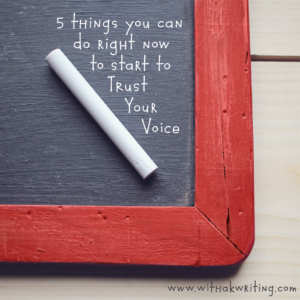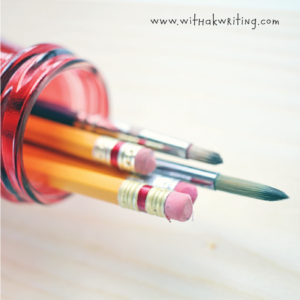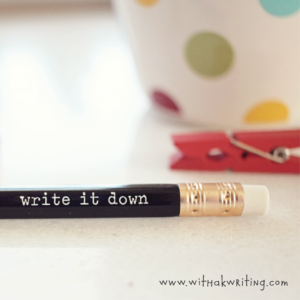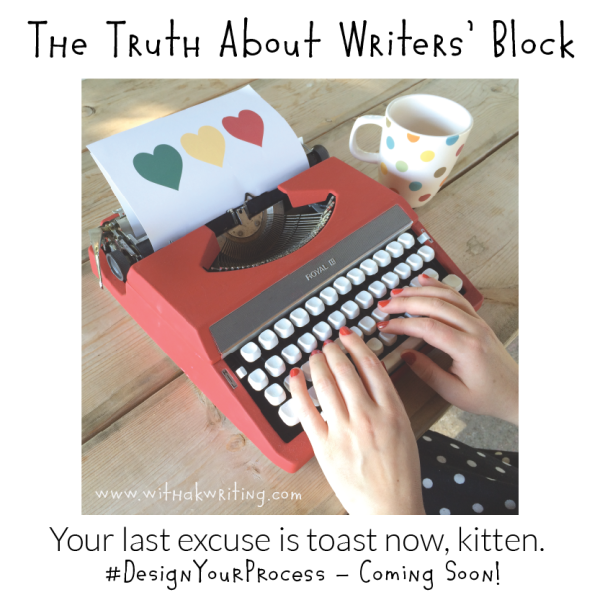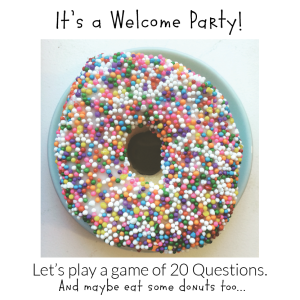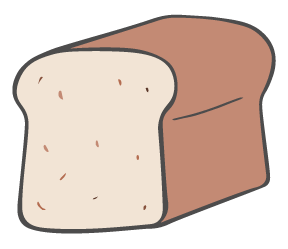
Why you shouldn’t write King Lear right now, and what to do instead.
Oh there’s that meme again.
You know the one about Shakespeare writing King Lear during the plague, or whatever.
Or the other one saying that you never lacked “time” but rather you lack “discipline” unless you create or learn or complete some amazing life-goal right now.
Maybe it’s a stream of pictures of *perfectly baked* sourdough bread that takes an entire day to prepare…and that’s after you’ve kept the starter alive for a week.
We’ve come to a tacit agreement, I think, that now is not the time to expect anyone to be writing King Lear.
Now is the time to expect compassion fatigue, financial stress, overall panic. Compound that with a terrible diet and wild expectations, and you’re likely not capable of anything even remotely like creating your life’s greatest work.
Don’t let toxic positivity guilt you into thinking that you should use this time you’re stuck at home to create every single thing, or become the ultimate version of yourself as a writer – or as a human being.
You don’t need to learn Spanish or write your novel or learn to make the perfect Sourdough Bread.
So what then should a Writer be doing with "All of this Time TM", if not writing King Lear? Maybe let's try surviving, for a start. #StayHomeWrimo Share on XFirst of all, Let’s be clear on one premise: it takes more than time to write something powerful.
I’ve been writing and sharing the things I’ve written in various forms for long enough that if I said the number of years, I would feel like I probably should have written at least one King Lear already.
So, I’ve been writing my own things, teaching other people to write their things, and acting as a Developmental and Copy Editor for clients for a while.
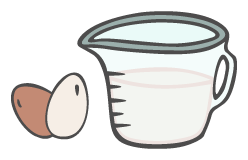
I’m a pro at this. I’m like a fancy YouTube or Food Network baker…but with words – and even the pros need more than one ingredient to make writing – or homemade sourdough – work.
A ton of time, locked in my house, with nothing else to do? It’s maybe a part of one of the ingredients, but it certainly won’t get the thing done on its own.
Believe me when I say that pouring time on the big projects isn’t necessarily going to get them done.
And honestly, getting big projects done isn’t the most important part of writing. In fact, it’s not even close – especially right now.
I know what kind of headspace we need to do these big projects, and I’ll tell you one thing: coherent thought and not existing in constant Fight, Flight or Freeze mode is a good baseline for mastery of any skill.
I’ve been teaching people how to write for almost as long as I’ve been writing myself.
I have a tried and true recipe for making a happier and more effective writer.
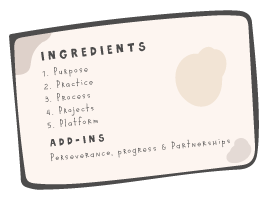
Over those years, I developed a some specific things to work on – in a specific order – to help writers of all levels to share their voice in a way that feels good (or at least better) and reads well. I teach writing to my students in five stages. These are the ingredients it takes for me to make a writer.
There are other recipes that work too, but every one that works has at least one thing in common: they require more than one ingredient.
We always start by looking at the Purpose of writing – for the writer.
Why are you doing this, and how do you want it to affect others? This is like pre-heating the oven. You set it, and then let it warm up in the background while you do other things.
You’ll have to come back and check it, and maybe adjust it as you go, but you need to start it up early on.
Next, we make a clear Writing Practice a part of the writer’s life.
Your practice is the daily or weekly time and thought devoted to thinking about and playing with words and ideas and habits. It’s comforting and skill building – and really really nice.
This is kind of like feeding your starter. You need to pay attention to it and come back to it often, and on purpose, or it will die. But if you feed it regularly, and learn about what conditions make it flourish, it becomes a magical ingredient to grow your writing into something amazing.
It’s also cool to see the bits you add together turn into something that can create more of itself in the future, if you keep feeding it. Magic!
And then we look at designing a Writing Process that’ll get the big ideas onto the page.
Every writer develops her own process, but there are key components that need to be in there. This is like finding and fine-tuning your own recipe for a basic bread.

You try new ingredients you love (or hate). You change the temperature or cooking time, and tweak the measurements of everything. You learn how to knead in a way that feels satisfying and creates just the right amount of elasticity and bubbles.
And you develop the muscles in your hands to do it without passing out from cramps. This metaphor is KILLING it, guys. Who knew I could find another way to use carbs!?
Only after all of that, do we start to work on developing larger writing projects.
Tackling actual projects – like writing a play or novel or even an article? That’s way down the list, luvs. WAY DOWN. Because it’s hard and it’s stressful, and it’s very high pressure.
Whatever your #WritingProcess looks like, you gotta be ready before you dive into a huge project. Part of that is knowing that it's going to be HARD to do – especially with #QuarantineBrain. Share on XThose big projects are not the easy part.
It’s definitely not relaxing or comforting to try to wrestle your big idea into something close to what you imagine. Never mind trying to show another human being who doesn’t live inside your head what your big idea means.
Things are already hard right now. We don’t need another expectation, or more guilt about the way we behave under pressure.
Comfort and kindness are more important than ever, and I for one am looking for activities that will help me to survive the added mental health strain I’m under.
I don’t need to force myself to make something that will SAVE THE WORLD. Or even just entertain a few people in the world really well. I don’t need to Write King Lear – or perfect any difficult recipe right now.
Writing every day can actually be therapeutic – just like baking!
Some folks enjoy the slowed down and mindful thinking that journalling provides them. Many therapists use a more formal Journal Therapy to help their clients through their treatment.
From healing through trauma to managing big life changes or logging a wide variety of mental health symptoms, Journal Therapy can be a truly beneficial part of treatment for lots of people.*
Don’t ruin it by attaching unnecessary weight to your pen.
If you end up making something, awesome! But you don’t need to show up to the page with any expectations.
Being obsessed with productivity is crap at the best of times, and this is not the best of times. So look for what does you good. And if you want to work on writing, work on the Practice – or developing the best Process for you.
Practice feels good and manageable and a lot like progress without expectations or pressure.
On the other hand, creating a comfortable and invigorating creative process could give you something to dive into when everything around you is in turmoil. It could even be seen as a bit of routine in the chaos. This brain needs some routine in her life right now.
Shakespeare didn’t decide to bake up a loaf of King Lear on a lark, because he was stuck at home.
He’d been writing for a long time. His purpose was clear. His practice was strong and constant, and he had his process down. He’d also been living under the threat of the plague his whole life.
The theatre shut down in 1606 was due to a resurgence of deaths, at that time, but it wasn’t entirely out of the ordinary.†
He had a successful recipe to get from an idea to a finished piece, so he decided to do the work he was prepared to do while theatres were closed, as they sometimes were in his time.
It was pretty par for the course for him to be writing large projects in the conditions he found himself in, so he was prepared.
And look. If you are prepared to do the thing too – you should do it!

If you love baking and have a recipe and ingredients to make a loaf of bread – you should do that!
But if you’re too tired to brush your teeth today, or you don’t have any clear or coherent writing practice in this kind of world? Do. Not. Do it! Do something gentle and kind and more like a first step than a pirouette. That’s a mixed metaphor, but I like it, so I’m keeping it!
I thought for a moment there, myself, that this would be a great time to finish that book I started in November.
I was wrong. This is not the time for me to do that. This is the time for me to congratulate myself if I remember to change my underwear every day. I am not in fighting shape to write a book right now.
So, I’m restarting my free-writing challenge, because I need a reminder that the Practice is as important (or maybe more important than) the Projects.
And I need some routine and accountability or I’ll spiral into complete thought-pudding-couch-fort-anarchy.
If you feel like that might be helpful to you as well, join me!
It’s free, and it doesn’t have any kind of pitch at the end. It’s fun too -depending on how you feel about notebooks and donuts. And it’s probably a lot more comforting than the plot of King Lear or the process of tackling a project of that magnitude.
You can join for free and get a Free-Writing prompt in your emailz every day for the next 30 days. I designed the prompts pre-Covid, but we can tweak them to include the reality of life, these days.
The challenge will help you get the pen into your hand regularly and develop a Writing Practice that feels nice and comfortable.
That feels like a good thing, and a reasonable goal, right about now, yeah?
There’s a prompt all about snacks too, so you’ll have lots of opportunity to eat that bread you’re making.

- *https://www.goodtherapy.org/learn-about-therapy/types/journal-therapy
- †https://www.theguardian.com/stage/2020/mar/22/shakespeare-in-lockdown-did-he-write-king-lear-in-plague-quarantine
You mad? Excited? Have a perspective to share? Please do!
Want to read more? Check out these recent articles.
Embrace your Beginning, Love your Practice & Trust your Voice with Random Olive
I’ve said it before & I’ll say it again: if you want to be a writer, you have to write. Every. Single. Day. You need to put pen to paper & do the thing over & over again – & be willing for it to not be perfect…for a while. I often tell my daughter,…
To Actually BE a Writer, you need to be doing these 3 things
I’ve always known that I wanted to be a writer. But I haven’t always known how to actually…well…BE a writer. I mean, I learned fairly early on how to write things: sentences, paragraphs, stories, poems…but that’s not what it takes to really be a writer. It’s a big piece of it, but it’s only a piece.…
Stop Trying to Find Your Voice. Try trusting it instead.
The most common bit of writing advice out there is to, “Find your Voice,” but how do you even do that? Surprisingly, you have to stop trying.
The Shocking Truth About Writer’s Block is Simple.
It’s that horrible feeling when you sit down to write, but instead of finding that creative flow pouring out – you sit paralyzed, staring at your computer screen & seething at the impossible task of…words. Everybody who’s tried communicating with words has felt it: a paralyzing barrier between the idea you want to share & the ability to…
Let’s play a little game of 20 Questions
A few weeks ago, I went on the trip of a lifetime. I didn’t go on rides at Disneyland or see a Broadway show in New York City, & I didn’t go to Scotland to search for a family castle either. I will someday though. Sup, Clan MacLeod! I went to San Francisco; it wasn’t my first…

